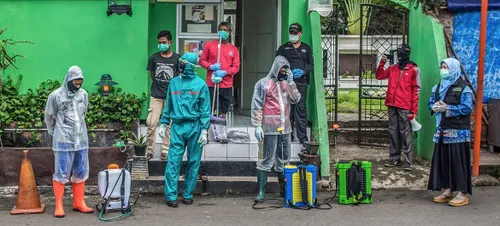Introduction
Indonesia is taking significant steps to address the rising threat of tuberculosis (TB) by accelerating the development of a new vaccine. With the increasing number of TB cases, the Indonesian government, along with various stakeholders, is prioritizing the development and distribution of a more effective TB vaccine. This essay explores the importance of this initiative, the current state of TB in Indonesia, and the collaborative efforts involved in this crucial health project.
Table of Contents
Current TB Situation in Indonesia
Tuberculosis remains a major public health issue in Indonesia, with the country ranking among the highest in terms of TB burden globally. Despite efforts to control the disease, the number of cases has continued to rise, posing significant challenges to the healthcare system. Factors such as high population density, inadequate healthcare infrastructure, and socio-economic disparities contribute to the widespread prevalence of TB in the country.
The Need for a New TB Vaccine
The existing Bacillus Calmette-Guérin (BCG) vaccine, developed nearly a century ago, offers limited protection against TB, particularly in adults. While it provides some protection against severe forms of TB in children, its effectiveness in preventing pulmonary TB, the most common and contagious form of the disease, is minimal. Given the limitations of the BCG vaccine, there is a pressing need for a more effective TB vaccine that can provide broader and longer-lasting protection.
Government Initiatives and Funding
Recognizing the urgency of the situation, the Indonesian government has ramped up efforts to support the development of a new TB vaccine. This includes increasing funding for research and development, fostering partnerships with international organizations, and ensuring that the vaccine development process is fast-tracked. The government’s commitment to combating TB is evident in its allocation of resources and prioritization of TB vaccine research within its national health agenda.
Collaborative Efforts and Partnerships
The accelerated development of a new TB vaccine in Indonesia is a result of collaborative efforts between the government, research institutions, non-governmental organizations (NGOs), and international partners. Organizations such as the World Health Organization (WHO) and the Bill & Melinda Gates Foundation are playing a crucial role in supporting research, providing technical assistance, and ensuring that the vaccine development process adheres to global standards. Additionally, local research institutions are working closely with international experts to leverage the latest scientific advancements in vaccine development.
Research and Development Progress
Significant progress has been made in the research and development of the new TB vaccine. Indonesian scientists and researchers are utilizing cutting-edge technology and innovative approaches to design a vaccine that offers better protection against TB. Clinical trials are being conducted to test the efficacy and safety of the vaccine, with promising results so far. The accelerated timeline for vaccine development reflects the commitment of all stakeholders to address the urgent need for a more effective TB vaccine.
Public Health Impact and Benefits
The successful development and deployment of a new TB vaccine would have a profound impact on public health in Indonesia. A more effective vaccine could significantly reduce the incidence of TB, alleviate the burden on the healthcare system, and save countless lives. In addition, the new vaccine could help curb the spread of drug-resistant TB strains, which are more difficult and costly to treat. By reducing the overall TB burden, Indonesia would be better positioned to achieve its national and global health goals.
Challenges and Considerations
While the accelerated development of a new TB vaccine is a promising development, there are challenges that must be addressed. Ensuring equitable access to the vaccine, particularly for vulnerable and hard-to-reach populations, is a key concern. Additionally, the logistics of vaccine distribution and administration need to be carefully planned to ensure that the vaccine reaches those who need it most. The cost of the vaccine and the sustainability of funding for its production and distribution are also important considerations.
Community Engagement and Awareness
Community engagement and awareness are essential components of the TB vaccine initiative. Educating the public about the importance of vaccination, dispelling myths and misconceptions, and encouraging participation in vaccination programs are critical to the success of the initiative. The government and NGOs are working together to launch public awareness campaigns and involve community leaders in promoting the new vaccine.
Conclusion
Indonesia’s efforts to accelerate the development of a new TB vaccine represent a critical step in the fight against tuberculosis. By prioritizing research and development, fostering collaborations, and engaging communities, the country is positioning itself to make significant strides in reducing the TB burden. The successful development and deployment of a more effective TB vaccine would not only benefit Indonesia but also contribute to global efforts to combat this deadly disease. The road ahead may be challenging, but with continued commitment and collaboration, Indonesia is well on its way to achieving a healthier future for all.








